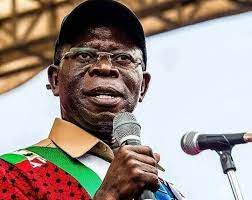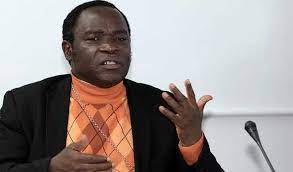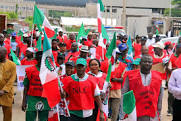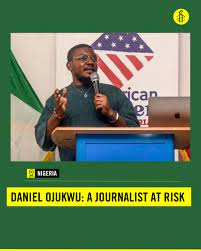In Nigeria, the labour movement has historically been a powerful force, advocating for the rights and interests of all Nigerian workers. However, in recent years, the once formidable Nigeria Labour Congress (NLC) has faced criticisms and scrutiny for its perceived decline in effectiveness and integrity. This feature story explores the evolution of labour activism in Nigeria, from the era of strong leadership under figures like Adams Oshiomhole to the current challenges faced by the NLC. Juliet Jacob reports.
The Era of Oshiomhole’s Leadership

During the tenure of Adams Oshiomhole as President of the NLC, the congress was known for its decisive actions and unwavering stance against government policies perceived as detrimental to workers’ welfare. Oshiomhole’s leadership instilled fear in the government, as the NLC’s ability to mobilize nationwide strikes was unparalleled.
The Rise of Political Godfathers
Labour leader Adams Oshiomhole’s ascent to political prominence marked a turning point in Nigerian labour leadership. With his foray into politics, Oshiomhole set a precedent for subsequent labour leaders who sought to emulate his success. Kukah, a prominent voice in Nigerian discourse, highlighted the danger of this shift, noting that it deviated from the traditional values of labour activism.
Decline in NLC’s Influence
Since Oshiomhole’s departure, the NLC has faced criticism for its perceived lack of assertiveness and susceptibility to government influence. Critics argue that the current leadership is more amenable to negotiation with the government, leading to a decline in the congress’s effectiveness as a champion for workers’ rights.
Recent Challenges and Criticism
Recent events, such as the suspension of a planned protest against economic hardship, have further eroded public confidence in the NLC’s ability to advocate for workers effectively. Criticism from various quarters, including human rights campaigners and former government officials, highlights the congress’s perceived loss of credibility and integrity.
The Decline of Credibility
The recent actions of the Nigeria Labour Congress (NLC), including the abrupt suspension of nationwide protests, have raised questions about the union’s credibility. Human rights campaigner Omoyele Sowore accused the NLC of damaging its image and losing credibility as a champion of workers’ interests. The failure to follow through on planned protests against economic hardship further eroded public trust in the NLC’s ability to advocate effectively.
Analysis and Reflection
The changing landscape of labor activism in Nigeria prompts reflection on the factors contributing to the NLC’s decline and the implications for workers’ rights and social justice. From the influence of political interests to internal leadership dynamics, understanding the challenges faced by the NLC is crucial for envisioning the future of labor activism in Nigeria.
The Evolution of Labour Leadership in Nigeria
In the intricate tapestry of Nigerian politics, the role of labour leaders has undergone a significant transformation over the years. From champions of workers’ rights to political power players, the trajectory of labour activism has sparked debates and raised concerns about the integrity of the movement.
The Erosion of Heroism

Kukah lamented the dilution of the heroic legacy left by past labour leaders such as Michael Imoudu and Herbert Macaulay. He criticized the emergence of opportunistic labour leaders who prioritize personal gain over the welfare of workers. This departure from the principles of selflessness and advocacy has led to a compromised labour leadership that undermines the revolutionary spirit of the movement.
The Quest for a New Minimum Wage

Amidst these challenges, the NLC and Trade Union Congress (TUC) have embarked on a quest for a new minimum wage to address the harsh economic realities facing Nigerian workers. The proposed wage increase, from N30,000 to N615,000 per month, reflects the unions’ commitment to alleviating the financial burdens borne by workers. However, the journey towards securing this wage hike has been fraught with obstacles and contentious negotiations with the government.
Navigating Political Allegiances
The intersection of labour activism and partisan politics has further complicated the landscape for labour leaders. Allegations of collaboration with ruling parties, as exemplified by the controversy surrounding NLC President Joe Ajaero’s purported alignment with the All Progressives Congress (APC), underscores the challenges of maintaining independence and credibility in the face of political pressures.
Conclusion: The Future of Labour Leadership
As Nigeria navigates its socio-political terrain, the future of labour leadership hangs in the balance. The need to revive the integrity and efficacy of the labour movement remains paramount, amidst growing disillusionment and skepticism. The evolving dynamics between labour unions, political parties, and the government will shape the trajectory of labour activism and its impact on the welfare of Nigerian workers.
As Nigeria grapples with socio-economic challenges and increasing inequality gap, the role of the labour movement in advocating for workers’ rights remains critical. However, the erosion of the NLC’s influence underscores the need for a thorough reform within the congress to regain public trust and effectively champion the interests of Nigerian workers.



